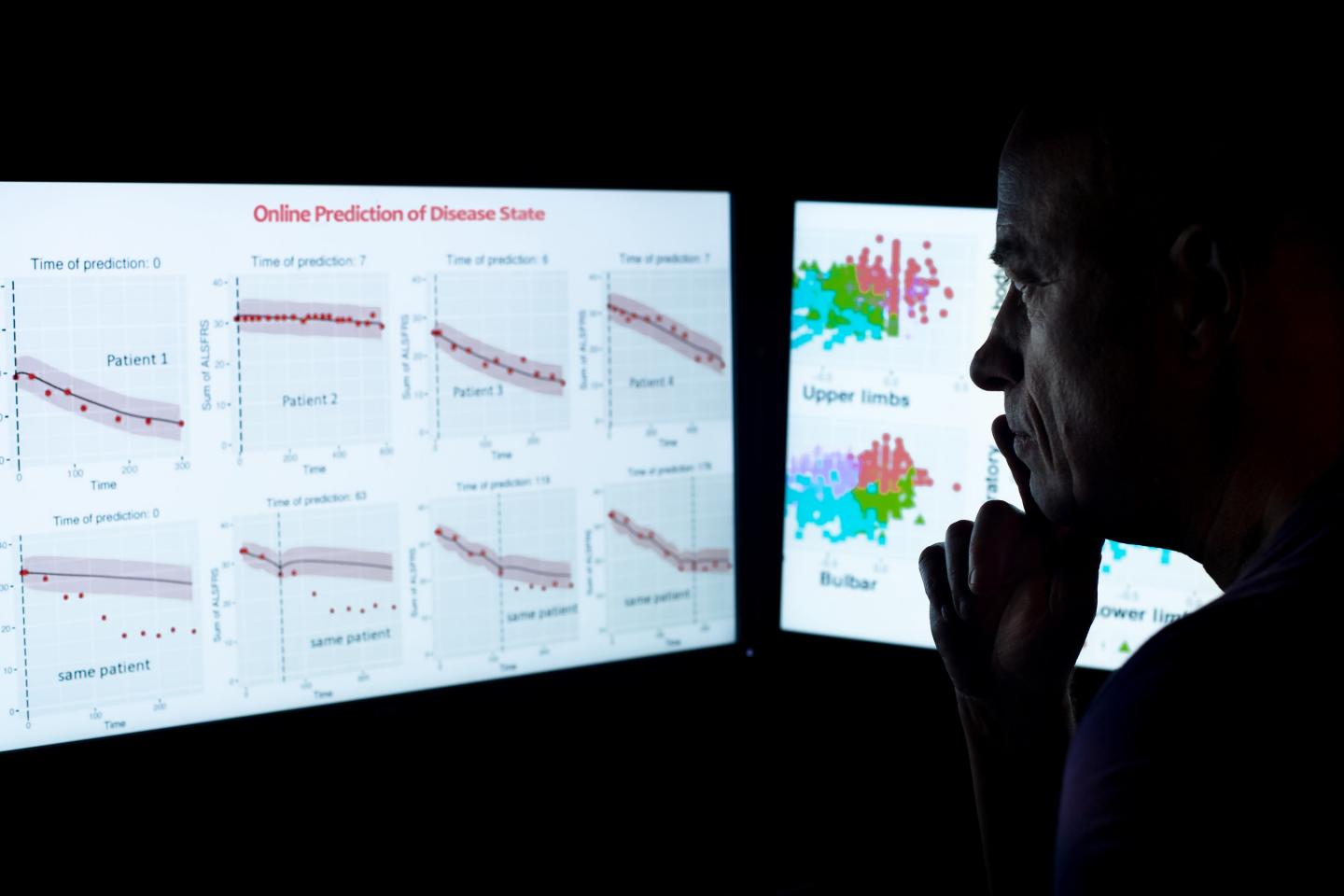Technology will also improve drug development and clinical trials for neurodegenerative diseases

Credit: Dani Machlis/BGU
BEER-SHEVA, Israel…February 20, 2019 – Ben-Gurion University of the Negev (BGU) has developed a new artificial intelligence (AI) platform for monitoring and predicting progression of neurodegenerative diseases to help identify markers for personalized patient care and improve drug development.
The platform, developed by Prof. Boaz Lerner of the BGU Department of Industrial Engineering and Management will initially be used for amyotrophic lateral sclerosis (ALS) and ultimately for Alzheimer’s, Parkinson’s and other neurodegenerative diseases.
“One of the big challenges of designing and managing clinical trials for ALS is that it is a rare disease, and clinical variability makes it hard to identify markers for severity,” says Prof. Lerner. “As a result, after decades of research, there is still no real cure for ALS and several other challenging neurodegenerative diseases, including Alzheimer’s.
“Our new technology will more accurately predict disease progression, a crucial ingredient for clinical trials, and better identify the interrelationships between demographics and other measurable factors identified through physical examinations and patient functionality.”
ALS, also known as Lou Gehrig’s disease, is a fatal neurodegenerative disease that causes death of motor neurons which control voluntary muscles. This muscle atrophy leads to progressive weakness and paralysis, difficulty speaking, swallowing and breathing. The average survival time for people who are typically diagnosed between ages 40 to 60 is two to five years from onset of symptoms.
ALS population heterogeneity complicates research and drug development because of symptom variability at onset, disease progression rates and patterns, and survival statistics. This variability makes it difficult to predict disease progression rate and pattern for individuals.
Having a reliable personalized prediction platform could improve patient care and quality of life for many patients and their caregivers. The new AI platform could also improve clinical trial design by identifying markers for various patient sub-populations’ treatment.
The BGU platform integrates demographic and clinical data with machine learning and data mining algorithms to produce models that can predict the rate and pattern of ALS progression, identify specific lab tests or vital signs, and stratify similar sub-groups from the diverse ALS population. The algorithms, and their ability to predict disease progression, will improve as clinical data is added for each patient.
“Now that the algorithms required to produce effective models have been established and evaluated, the funding we received from the Israel Innovation Authority will enable researchers to create a system that patients, physicians, caregivers, pharmaceutical companies, HMOs, and insurers can use on desktop and mobile applications to monitor and predict ALS progression,” says Itzik Mashiach at BGN Technologies, BGU’s technology-transfer company.
“We are now seeking an industry partner to further develop and commercialize this innovative patent-pending technology.”
###
About BGN Technologies
BGN Technologies is the technology-transfer company of Ben-Gurion University of the Negev in Israel. BGN brings technological innovations from the lab to the market and fosters research collaborations and entrepreneurship among researchers and students. To date, BGN has established more than 100 startup companies in the fields of biotech, high-tech and cleantech, and initiated leading technology hubs, incubators and accelerators. Over the past decade, BGN Technologies has focused on creating long-term partnerships with multinational corporations including Deutsche Telekom, Dell-EMC, IBM, PayPal, and Bayer, securing value and growth for Ben-Gurion University and the Negev region. For more information, visit the BGN Technologies website.
About American Associates, Ben-Gurion University of the Negev
American Associates, Ben-Gurion University of the Negev (AABGU) plays a vital role in sustaining David Ben-Gurion’s vision: creating a world-class institution of education and research in the Israeli desert, nurturing the Negev community and sharing the University’s expertise locally and around the globe. As Ben-Gurion University of the Negev (BGU) looks ahead to turning 50 in 2020, AABGU imagines a future that goes beyond the walls of academia. It is a future where BGU invents a new world and inspires a vision for a stronger Israel and its next generation of leaders. Together with supporters, AABGU will help the University foster excellence in teaching, research and outreach to the communities of the Negev for the next 50 years and beyond. Visit vision.aabgu.org to learn more.
AABGU, headquartered in Manhattan, has nine regional offices throughout the United States. For more information visit https:/
Media Contact
Andrew Lavin
[email protected]
516-353-2505



